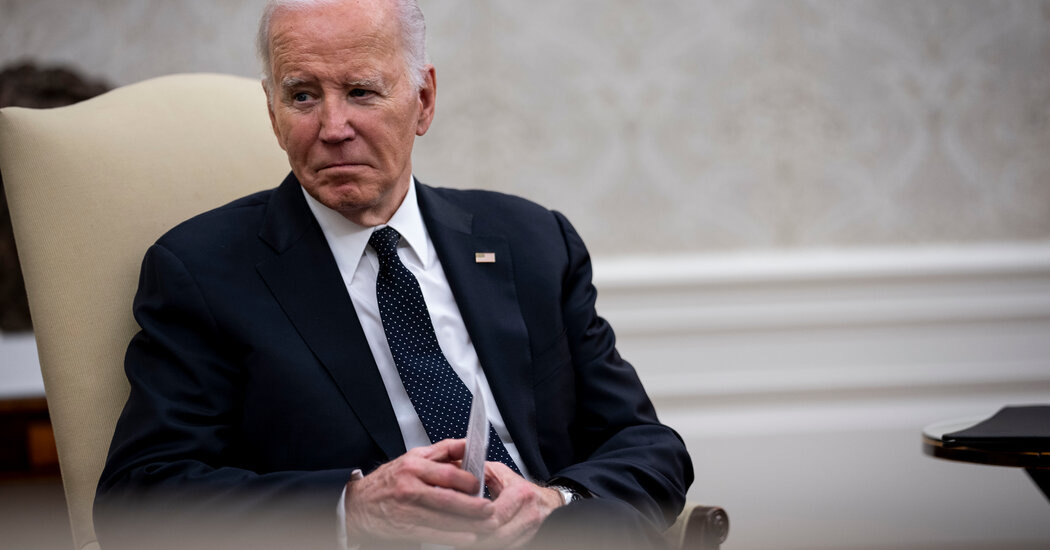President Biden laid it out for Prime Minister Benjamin Netanyahu of Israel long before letting the public know. In a conversation bristling with tension on Feb. 11, the president warned the prime minister against a major assault on the Gaza city of Rafah — and suggested that continued U.S. support would depend on how Israel proceeded.
It was an extraordinary moment. For the first time, the president who had so strongly backed Israel’s war against Hamas was essentially threatening to change course. The White House, however, kept the threat secret, making no mention of it in the official statement it released about the call. And indeed, the private warning, perhaps too subtle, fell on deaf ears.
Six days later, on Feb. 17, Mr. Biden heard from Secretary of State Antony J. Blinken. The president’s chief diplomat was calling from his blue-and-white government plane as he was flying home from a security conference in Munich. Despite the president’s warning, Mr. Blinken reported that momentum for an invasion of Rafah was building. It could result in a humanitarian catastrophe, he feared. They had to draw a line.
At that point, the president headed down a road that would lead to the most serious collision between the United States and Israel in a generation.



This is the best summary I could come up with:
In a conversation bristling with tension on Feb. 11, the president warned the prime minister against a major assault on the Gaza city of Rafah — and suggested that continued U.S. support would depend on how Israel proceeded.
“He has just gotten to a point where enough is enough,” said former Defense Secretary Chuck Hagel, a onetime Republican senator from Nebraska and a friend of Mr. Biden’s from their days together in Congress and President Barack Obama’s administration.
Interviews with administration officials, members of Congress, Middle East analysts and others, many of whom spoke on condition of anonymity to describe internal deliberations, indicate that the president’s decision came not as a sudden break but as the inexorable result of months of efforts to influence Israel’s behavior.
That suited Mr. Biden, who was eager to move on to reconstruction and possibly seal a broader deal with Saudi Arabia that would grant diplomatic recognition to Israel and transform the region.
On Feb. 8, Mr. Biden’s impatience flared when he told reporters that Israel’s attack on Gaza had been “over the top.” He signed a national security memorandum the same day meant to ensure that U.S. weapons would not be used in violation of international law.
“This combination of domestic imperative and strategic opportunity has driven Biden to a place he never expected to go,” said Martin S. Indyk, a two-time ambassador to Israel and former Middle East special envoy.
The original article contains 2,345 words, the summary contains 237 words. Saved 90%. I’m a bot and I’m open source!